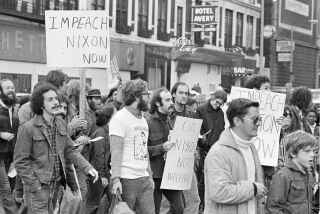Maybe nostalgia’s gotten a bad rap
“I’ll be home for Christmas -- if only in my dreams.”
--
Long derided as wimpy and a waste of time, nostalgia nonetheless often sweeps in this time of year and settles in for the holidays. In calling up memories of people and celebrations past, it can evoke feelings buried by time and daily life.
Now psychologists are rethinking the purpose of that peculiar sentiment -- and are drawing some surprising conclusions.
Depending on how it’s embraced, they say, nostalgia can be a healthy emotion that buffers people from loneliness and eases them through hard times.
In a recent study published in the journal Psychological Science, researchers in China who have studied nostalgia worldwide concluded that the feeling blunts loneliness. “A person immersed in nostalgia can feel connected even when he or she is alone,” says study author Ding-Guo Gao.
The study, published in October, is the latest about-face that research psychologists have done on nostalgia in recent years. The sentiment has long been associated with an unhealthy emotional state. And the term, derived from the Greek words for “return” and “suffering,” has been defined as “the yearning to return to one’s place of origin,” says Gao, a psychologist at Sun Yat-Sen University in Guangdong, China.
Gao’s study featured four experiments in which various groups of people completed questionnaires on nostalgia, loneliness and social connections or were asked about a nostalgic event and answered questions about their feelings. Each experiment showed that loneliness reduced the feeling of being socially supported but increased nostalgia. Nostalgia, in turn, increased the perception of social support.
“Nostalgia has had a very bad name among psychologists and psychiatrists,” says Krystine Batcho, a professor of psychology at Le Moyne College in Syracuse, N.Y., and a leading researcher on the emotion. “The feeling was that if you were nostalgic, you were trapped in the past.”
In the past decade or so, however, research has revealed nostalgia as a bittersweet emotion with some benefits. Batcho’s research shows that it helps people maintain their sense of identity. “Nostalgia is like looking in a rearview mirror,” she says. “Do I still have the values and priorities I had before? It gives us stability when we live in a time of constant change.”
Nostalgia also helps people feel connected socially, she says.
“The argument in [Gao’s] paper is that nostalgia works therapeutically,” she says. “You are reliving your social connectedness. It’s better than nothing. If you can’t be home for Christmas, at least you have your dreams.”
Americans are very forward-looking and may feel uncomfortable reviewing aspects of the past that are out of reach, Batcho says.
But researchers are experimenting to see whether nostalgia can be used therapeutically to help people through emotionally difficult times, such as after the death of a loved one.
In much the same way that systematically counting your blessings has been shown to improve mood, Gao plans to investigate whether engaging in nostalgic exercises can buffer people from loneliness or homesickness, as felt by the elderly, first-year college students and service men and women overseas.
--






